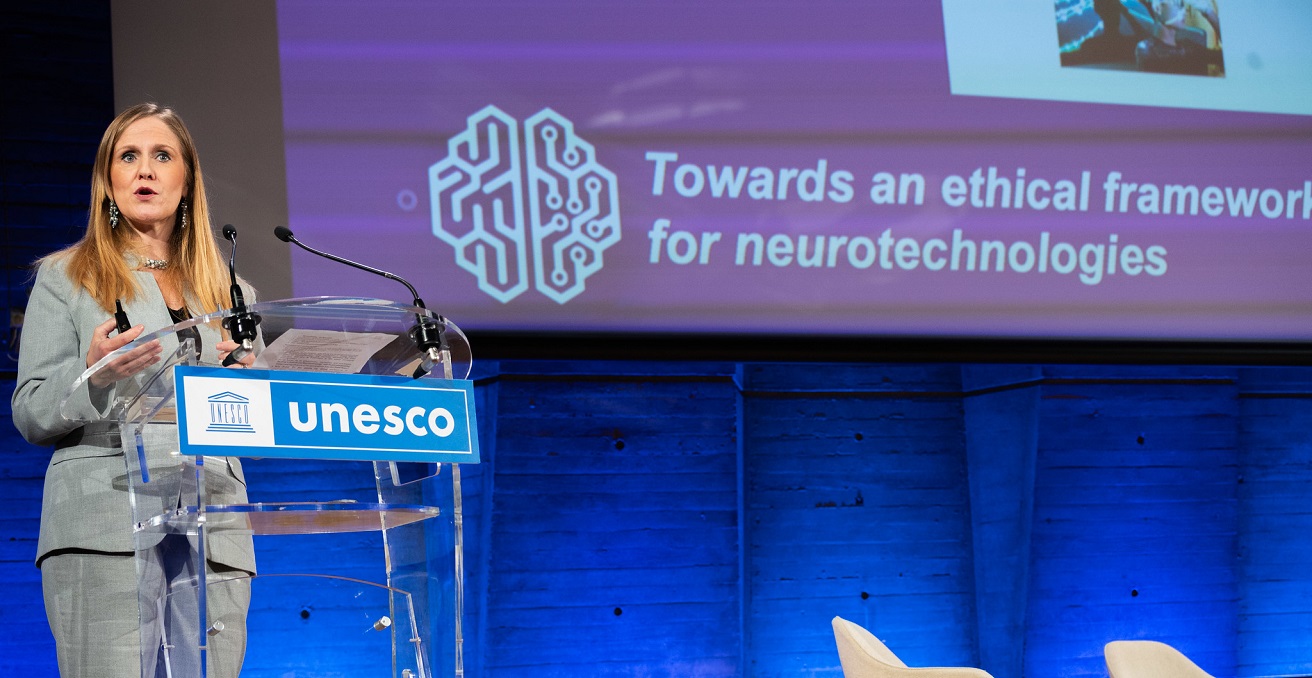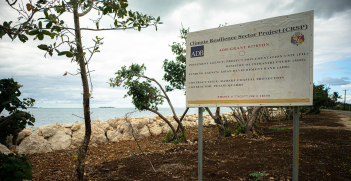Australia’s Potential Role in Global “Neurorights” Conversations

In only the last few years, “neurotechnology” has notched a place on the international agenda and prompted substantial expert debate around whether and why we need “neurorights.” With civil society actors and public voices largely absent from these international debates, Australia is uniquely positioned to facilitate and argue for greater inclusion in global neurorights conversations.
This past July saw perhaps the highest profile international meeting on “neurotechnology” and its ethical implications. The meeting was held by the United Nations Educational, Scientific and Cultural Organization (UNESCO) and featured a message directly from the UN Secretary General declaring “neurotechnology is advancing at warp speed” and raising the alarm about the human rights challenges of these new technologies. The letter goes on to call for “robust standards for mental integrity, mental privacy, and mental freedom” – which are all seen as candidates for potentially new human rights, often referred to as “neurorights.” However, while seen as a step forward for the neurorights movement, the UNESCO meeting had little representation from civil society or non-expert voices. In this setting, Australia can lead the way in making neurorights conversations more inclusive and transparent by engaging in and arguing for public consultation work around neurotech and potentially new human rights.
Neurotechnology is a term that is difficult to define, but broadly refers to innovations that directly or indirectly interact with the human brain, spine, or peripheral nerves. While older neurotech might include an MRI machine or cochlear implants, it is the newer innovations like brain-computer interfaces that are starting to grab policymakers’ attention. In particular, brain-computer interfaces can be targeted for medical uses or can be sold as consumer-facing products. For example, Synchron – an Australian start-up running a clinical trial in the US – is developing a surgically implanted device that would allow patients with certain kinds of paralysis to operate a computer only by “thinking.” Consumer products include wearable products, such as headbands or wristbands, and might be used to monitor a user’s attention or focus or control a video game. These kinds of neurotechnologies could open new opportunities for medicine, wellness, and entertainment. They are also likely to raise concerns around safety and privacy of brain data, and potential issues around mental experiences like personality and memory.
These concerns about neurotech have prompted many academic conversations about “neurorights,” which are a set of human rights that apply to the brain, mind, or other internal experiences. Such rights are generally framed as (often negative) individual rights that might benefit patients, consumers, or workers. Common norms now invoked here include cognitive liberty, mental privacy, mental integrity, and personal identity. For instance, a right to cognitive liberty, in Professor Nita Farahany’s words, would be an individual “right to self-determination over our brains and mental experiences” that might protect us from harms like improper surveillance of brain data.
But no consensus exists on what these neurorights look like and how to recognise them – or whether they are novel at all. In recent years, a small group of experts and advocates – primarily from high income countries – have been sparring over what neurorights “are,” which ones are most important, and why they are (or aren’t) necessary. At least some advocates hope for these norms to be recognised in international law through a new multilateral treaty, though experts continue to debate whether existing law protects these rights claims.
The neurorights movement has moved from scholarship into the policy realm at breakneck speeds. Just four years after the concept was introduced in the academic literature in 2017, Chile in 2021 amended its (current) constitution to incorporate neurorights-style protections – although questions remain about how much social demand there was for this move at the time. A 2021 report from UNESCO’s International Bioethics Committee, which last month’s meeting builds on, calls for the international community to urgently consider the human rights implications of neurotech. This has been echoed at the UN Secretariat level twice now, in the 2021 Our Common Agenda and again in the 2023 letter to UNESCO, with the UN Human Rights Council Advisory Committee also now working on a report on the topic.
UNESCO held its July conference against this backdrop featuring appearances from numerous experts and one panel of national-level ministers from five jurisdictions. While the term “neurorights” doesn’t appear on the meeting’s agenda, this was a major topic of debate during the conference. Pending a formal vote later this year, UNESCO appears interested in developing some form of international instrument around the ethics of neurotechnology, similar to its 2021 Recommendation on the Ethics of Artificial Intelligence.
Regional organisations are also beginning to weigh in – although comparatively little has been said from the Asia-Pacific or African regions. At the same time, civil society organisations and the views of non-expert publics haven’t been particularly well represented at the UNESCO meeting or elsewhere in these conversations. The “global” debate on neurotech policy and neurorights may soon run into issues with perceived inclusion and democratic deliberation.
Australia may also soon wade into neurorights conversations. While no representative of the Australian government spoke at last month’s UNESCO meeting, the Australian Human Rights Commission began signalling late last year that it would turn attention to neurotech. The Commission’s website now lists neurotechnology as a key priority in its work on technology and human rights.
As these efforts move forward in the coming months, Australia is uniquely poised to contribute to global conversations on neurorights by arguing for and engaging in public consultation around these issues. This work could take various forms, but would involve soliciting the opinions of diverse, non-expert Australians about their concerns with neurotechnologies and their feelings on the potential to recognise novel human rights. While it requires time and resources, when done well, public engagement can make policy conversations in technical areas more transparent, inclusive, and robust, while potentially contributing new policy ideas or rationales.
Further, Australia is well positioned to bring public voices into neurorights debates – as this wouldn’t be the first time Australia would inform policy debates about emerging technologies with public engagement. Only last year, Australia became the second country in the world to directly authorise and regulate a new kind of reproductive technology called mitochondrial donation. These techniques were controversial because they involve making a human embryo with a small amount of DNA from a third person (the mitochondrial “donor”) to avoid severe mitochondrial diseases, and raised several ethical and social questions. Before voting on legislation, the Department of Health and NHMRC conducted public consultation programs to solicit the comments and input from Australians on the techniques and proposed plan. The consultations brought together perspectives from different types of stakeholders and groups, and informed the policy debate on these complex technologies, which resulted in a robust regulatory scheme that seeks to balance different interests.
For neurotech and neurorights, Australian policymakers should consider conducting similar public consultations domestically – as well as arguing for public engagement to more broadly inform the emerging global debates around these potentially novel rights. With much at stake and no consensus on how or if to move forward with neurorights, uplifting more public voices could inform and ground these conversations in Australia and globally. In doing so, Australia would both build on its reputation and capacity to inform technology policy debates with public voices while also providing a more deliberative path forward in a global debate around neurorights that remains underinclusive.
Walter G. Johnson, JD, is a PhD scholar at the School of Regulation and Global Governance (RegNet) at the Australian National University. Johnson’s research covers the governance of current and emerging technologies and its politics. His recent co-edited volume with Diana Bowman and Karinne Ludlow, Reproduction Reborn, explores the regulation of mitochondrial donation with contributions across disciplines and jurisdictions.
This article is published under a Creative Commons License and may be republished with attribution.





